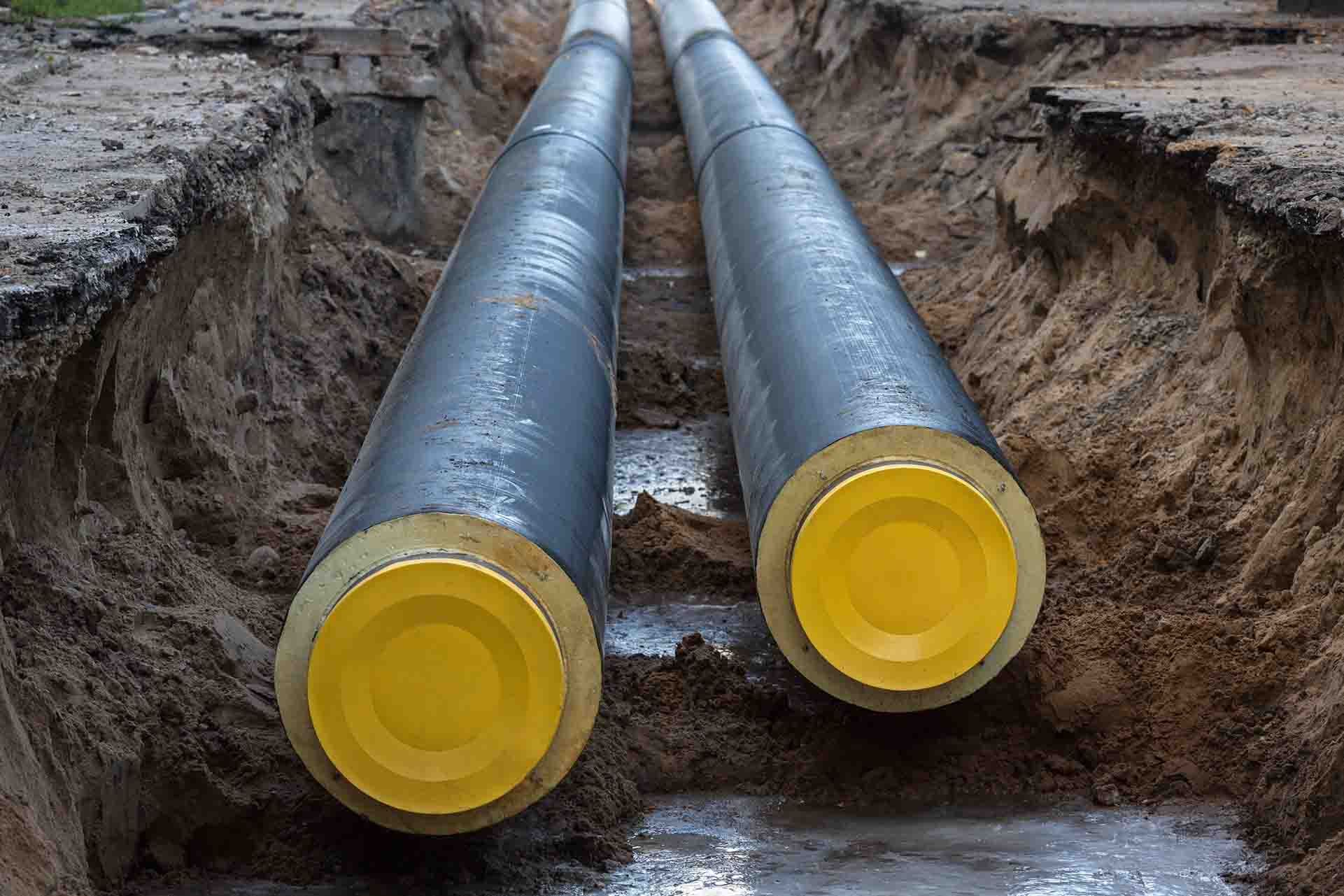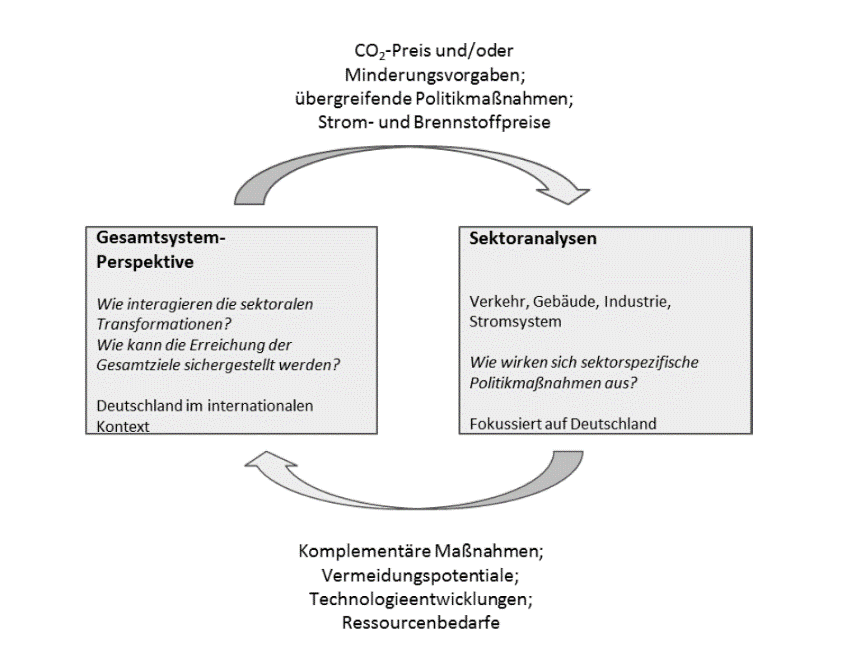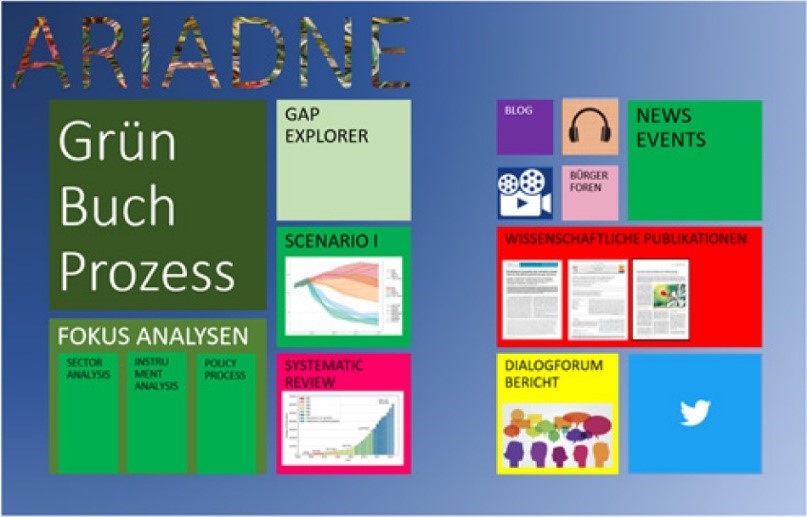Ariadne aims to use an evidence-based assessment to create an improved scientific basis for decision makers to help them shape the German energy transition.
The following specific project objectives arise from this overarching goal:
- Initiate learning processes in both politics and science and strengthen the role of the Federal Ministry of Education and Research as the voice of science in the political process
- Analyse and develop measures and political pathways
- Integrate system perspectives with detailed sectoral knowledge
- Integrated approach to measures, long-term technological and political options and governance
Ariadne was designed with the explicit aim of political and social usability. The project structure, the management, the partners, the content and the products are all orientated towards initiating learning processes in politics and science and strengthening the role of the Federal Ministry of Education and Research as the voice of science in the political process.
The core of this is the policy unit, which uses a multimedia green book and white book process to shape the dialogue with politicians, stakeholders and the wider public.
Ariadne research programme
Green book and white book process
At the heart of Ariadne is a targeted learning process between research, politics and society: it is about developing options to implement the German energy transition and ultimately assessing and shaping these. The project and its products can be broken down into two processes which build on one another: the green book process of developing options and the subsequent white book process of assessing and selecting options and the implementation of these in specific terms through to guiding packages of measures.
From the two processes, Ariadne generates the following four core products, both as the independent outcomes of the product and as the basis of the green and white books:
- Overarching energy transition scenarios and web-based visualisation tools (for example a gap explorer to investigate the avoidance and transformation gap in central areas of activity in the energy transition)
- Thematic focus analyses on political processes and sector transformations
- Dialogue forums with decision-makers and dialogue with citizens on the development and assessment of political options
- Formats for the communication of results to decision-makers and the wider public, for example in the form of policy briefs.
- Publications in peer reviewed journals to ensure a scientific foundation
The virtual capital of the green book process will be organised in the form of a website. All of the virtual capital will be made available on this website and the links to existing book entries/virtual capital explained. This will result in a detailed and interlinked overall view.


